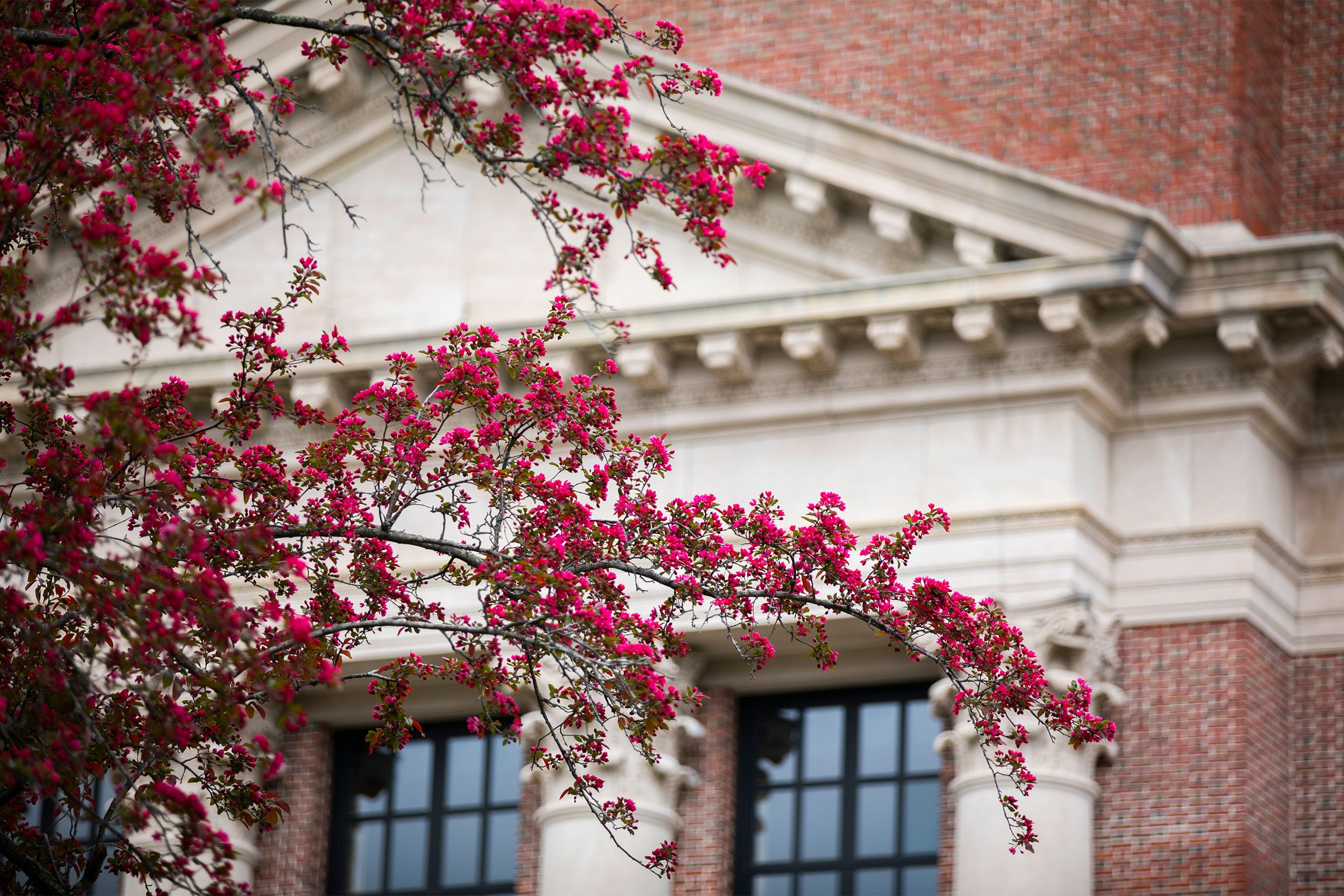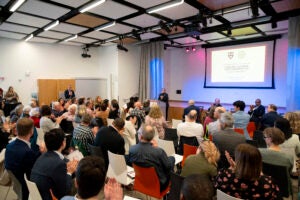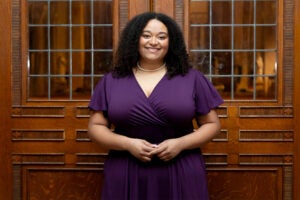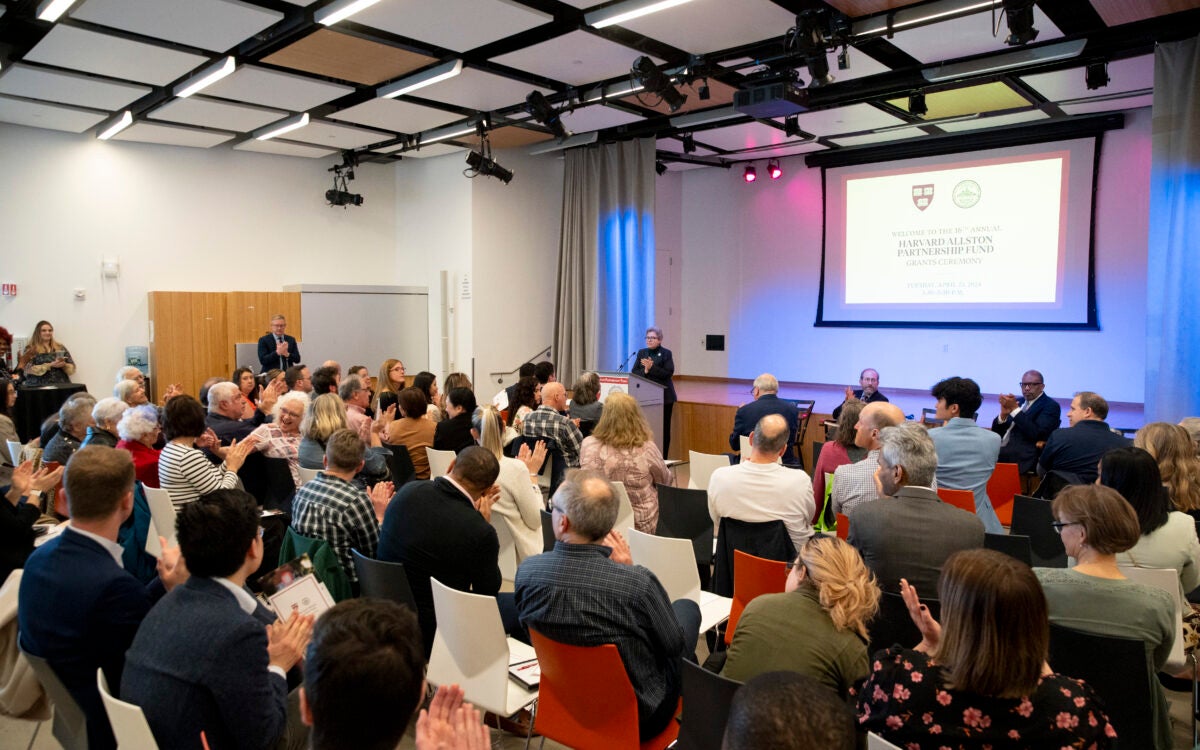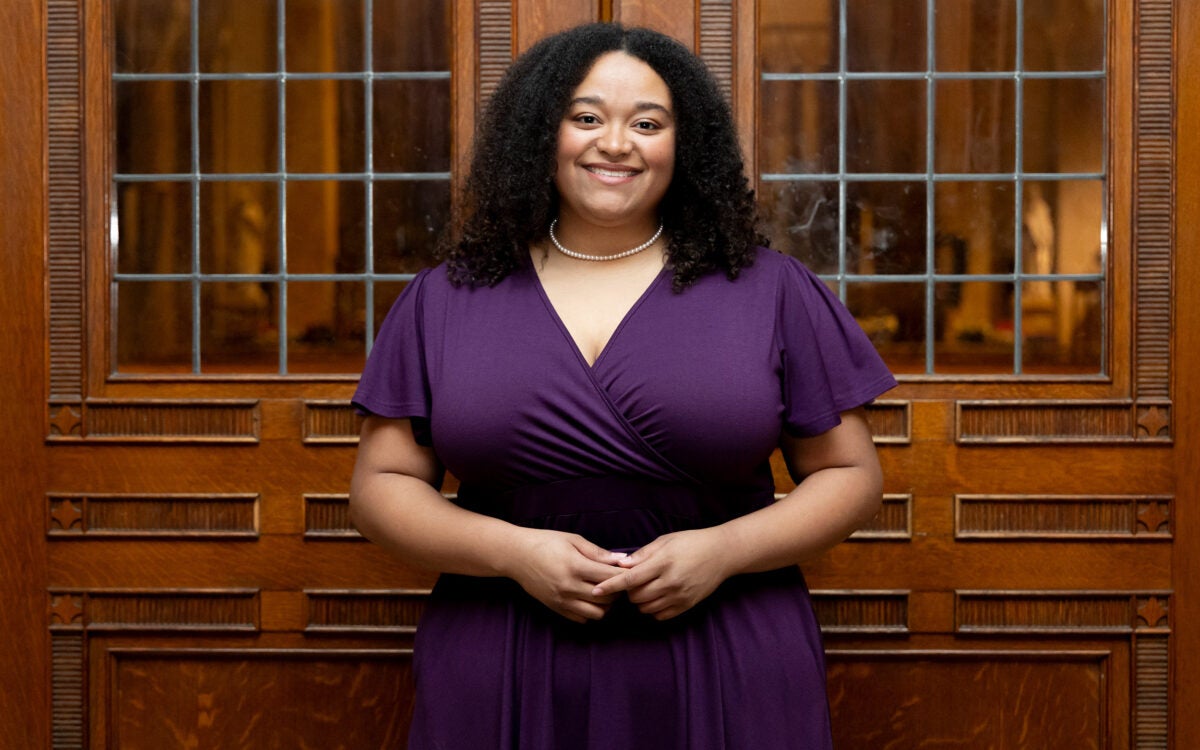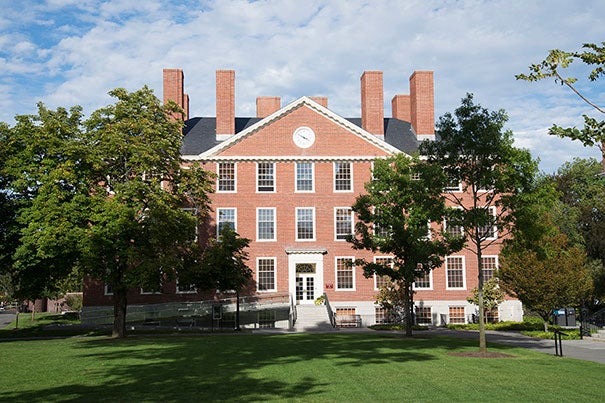
The Radcliffe Institute for Advanced Study has named 50 fellows for the 2016-17 academic year. The group “has an amazing reach and diversity, both topically and geographically,” said Radcliffe Dean Lizabeth Cohen.
Photo by Kevin Grady
From around the world and across Harvard
Radcliffe names 50 to its class of fellows for 2016-17
A performance artist from Cuba.
A biomedical tissue engineer from Australia.
A Civil Rights historian from Harvard Law School.
An opera composer from Syria.
A mathematician from the Broad Institute.
Together with 45 other women and men, they are the 2016–2017 fellowship class at the Radcliffe Institute for Advanced Study at Harvard University, for which the acceptance rate this year was just under 4 percent.
Each fellow pursues an individual project at Radcliffe, in a community dedicated to exploration and inquiry across disciplinary boundaries. In addition to receiving the funding, time, and space for a year of focused work, these scholars, scientists, and artists benefit from access to Harvard’s libraries and from engaging Harvard undergraduates as research partners.
Eleven of the incoming fellows come from across the University — including the Harvard Graduate School of Education, Harvard Kennedy School, Harvard Law School, and Harvard Medical School — along with the departments of art history, music, physics, and political science in the Faculty of Arts and Sciences.
The 2016–2017 Radcliffe Fellows are an international group, coming to the institute from Africa, Asia, Australia, Europe, and South America, as well as across North America.
“Next year’s fellowship class has an amazing reach and diversity, both topically and geographically,” said Radcliffe Institute Dean Lizabeth Cohen, RI ’02. “They are coming from six continents to study subjects ranging from black holes and depictions of the heavens in Chinese art to fossils embedded in the ocean floor and the relationship between fracking and earthquakes. These Radcliffe Fellows will literally be exploring heaven and Earth at Radcliffe, revealing that there is something new under the sun, after all.”
During the year, fellows will present their work in lectures and in gallery exhibitions, many of which are open to the public and shared online.
Several fellows are working on projects related to Civil Rights and African-American history, which connects well with Radcliffe’s March 2017 conference about the intertwined histories of slavery and universities.
The full list of fellows is online at www.radcliffe.harvard.edu.
